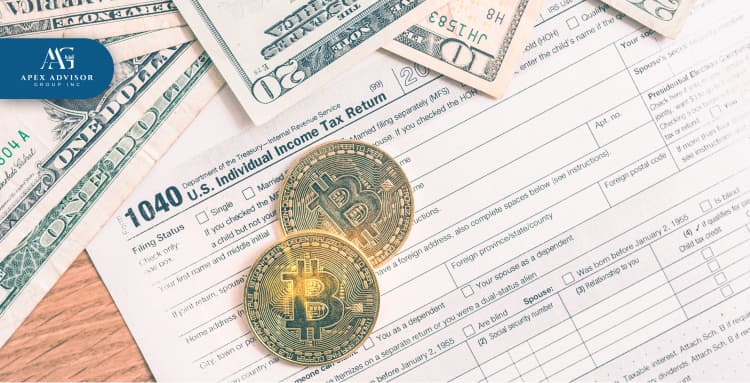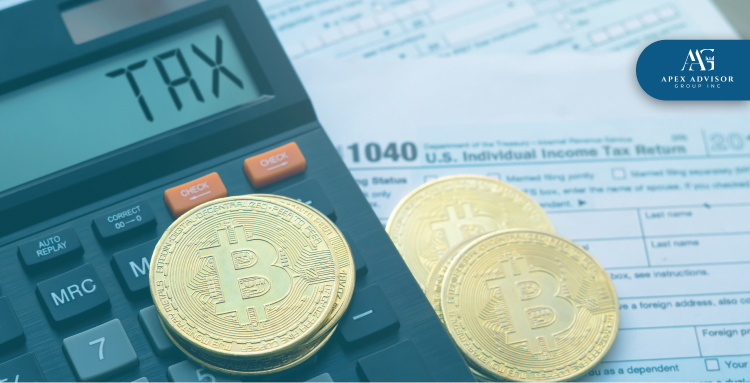Filing Taxes For Cryptocurrency What You Need to Know

November 26, 2024
Have you been buying Bitcoin, Dogecoin, or any of those meme coins? Awesome! But every time you sell, trade or convert your cryptocurrencies, it triggers a taxable event. Because the IRS considers this cryptocurrency as a virtual “asset” or “ property”. If you don’t report your income while making money through transitioning crypto, you can be in real trouble. Whether you profit or lose it still affects your taxes. Transactions of cryptocurrency are indeed virtual activity but it has serious consequences on real-life tax. A lot of folks are caught off guard by this, but don’t worry—we’ll break 'cryptocurrency taxes' down for you.
What Is a Taxable Event in Crypto?
First, let’s talk about ‘what a taxable event is’. Well, it is an event where any kind of action or transaction triggers taxes owed or tax obligations to the government. A taxable event in crypto means you made transactional activity like trade, sell, or convert with your virtual currencies. As it is an asset according to the IRS, any change in that is considered a taxable event.
You can buy as much Bitcoin or Dogecoin as you want, and as long as you hold it, the IRS doesn’t care. Buying crypto isn’t a taxable event. But the minute you sell—or even swap one crypto for another—that’s a whole different story. You’ve created a taxable event. Because of that, the IRS wants you to report every one of those transactions.
For example, you buy 1 Bitcoin for $10,000 in 2019. But today the worth of that Bitcoin is let’s say $30,000. If you sell that Bitcoin, you’ll make a $20,000 profit. This profit is considered as capital gains tax. As a result, you have to report it on your tax return.
Now you can ask – If I don’t withdraw that money but use it to buy another cryptocurrency, will it still count as a taxable event? Yes, it will still count as a taxable event. Every time you convert one crypto for another, it seems like you are selling actual crypto to buy a new crypto. That means it is taxable according to the IRS.
Misconceptions About Cryptocurrency Taxes

Many people think that just because their crypto is chilling on Coinbase or Binance and they didn’t withdraw the cash, it’s not taxable. Guess what? That’s 100% wrong. It doesn’t matter if you never touched the cash—if you sold or traded, the IRS wants it on your tax return. They include a question about your virtual currency, “Did you ever receive, sell, transmit, swap, or otherwise gain any financial stake in any virtual currency during 2023?”, on Form 1040.
Even if you get Form 1099, still you are bound to report all crypto transactions to the IRS. Form 1099 is a group of tax forms for all payment documentation. A non-employer broker normally made this report. However, if you just buy cryptocurrency but didn’t make any transactions you don't have to worry about reporting it.
Apart from that, there are some more misconceptions.
The blockchain is anonymous which is not true. It’s completely secure and decentralized. The IRS tracks your crypto wallet through Blockchain (public ledger) and KYC (know your customer) protocols.
If you don't receive Form 1099-B that doesn’t mean you don't owe any taxes. You still need to report all of your income from virtual currencies.
If you think private wallets don’t require reporting then it’s 100% wrong. Whether you use a private wallet or a public exchange, you’ll face the same tax rules.
Can You Claim Crypto Losses? Yes, but with Limits
Had a rough year with crypto investments? You can claim up to $3,000 in losses on your tax return. This means US taxpayers can deduct up to $3,000 from their regular income and balance them against capital gains. All cryptocurrency sales must be reported on Form 8949 in order to qualify for these tax breaks. If your losses are higher, don’t worry—they’ll carry over to the next tax season. Just keep in mind: gains aren’t capped. So if you made $20K or even $100K, the IRS will be expecting their cut.
What if you have no capital gains, then what? In that case, you can lower your crypto tax bill by using strategies like tax-loss harvesting. IRS compliance may be guaranteed and the reporting process made simpler with the use of tools like TokenTax's.
How to Minimize Your Cryptocurrency Taxes

The good news is, crypto isn’t exactly treated like stocks, so there are some ways to reduce your capital gains. That’s where keeping track of all your transactions comes in handy. We’ll need to dig into your history of buys and sells to figure out the best strategy for minimizing your taxable income. However, there are 4 strategies you can follow to minimize your crypto tax-
Hold your crypto for over a year before selling. This will help lower long-term capital gains tax rates.
Use crypto tax-loss harvesting. Offsetting losses against gains can reduce taxable income and overall tax bill.
Donate or give away your crypto. This will help lower your tax liability. Also, gifting cryptocurrency is tax-free unless its value at the time of the gift exceeds the current year's gift tax exclusion level. For example, the annual gift tax exclusion is $15,000 in 2023. If your gift value is lower than $15,000, you won't trigger gift tax.
Claim self-employment deductions. For example, you earn crypto through self-employment. To minimize tax, you can deduct your valid business expenses such as rent, utilities, and travel.
Remember one thing, cryptocurrency is volatile and lacks protections. Because the Federal Deposit Insurance Corporation (FDIC) or the Securities Investor Protection Corporation (SIPC) do not insure crypto. Therefore be careful before you invest or consult a tax advisor before you trade. “Buy crypto with an amount you can afford to lose”.
Stay With Apex Advisor For All Tax Updates and Solutions
Cryptocurrency taxes might be complicated. But with the right strategy and detailed record keeping it doesn’t have to be overwhelming. The most important step you can take is keeping a clear record of all your transactions. Whether you buy, sell, trade, or even use crypto for purchases. Know how to take advantage of every opportunity to cut your tax bill.
Want more tips on managing your crypto investments and paying less in taxes? Like, follow, and stay tuned—we’ve got more insights coming your way.
